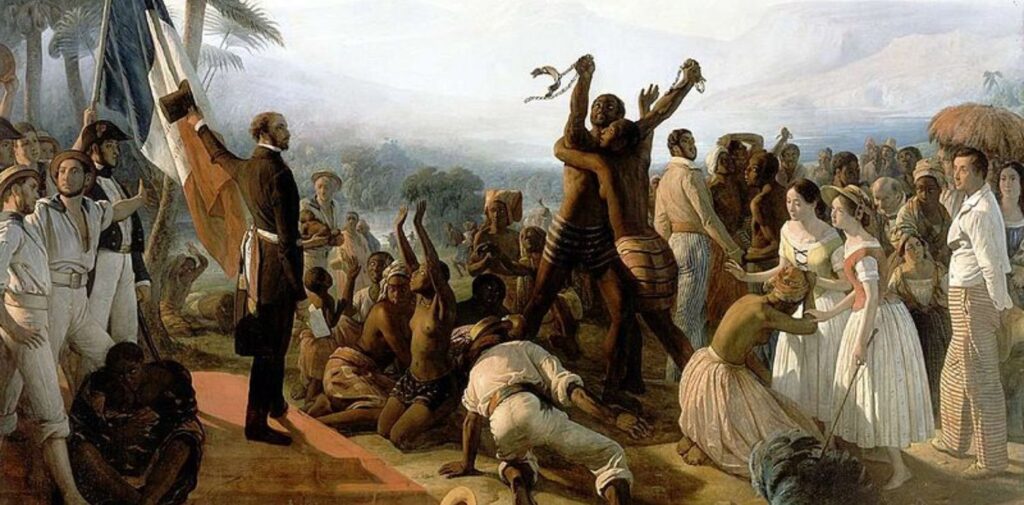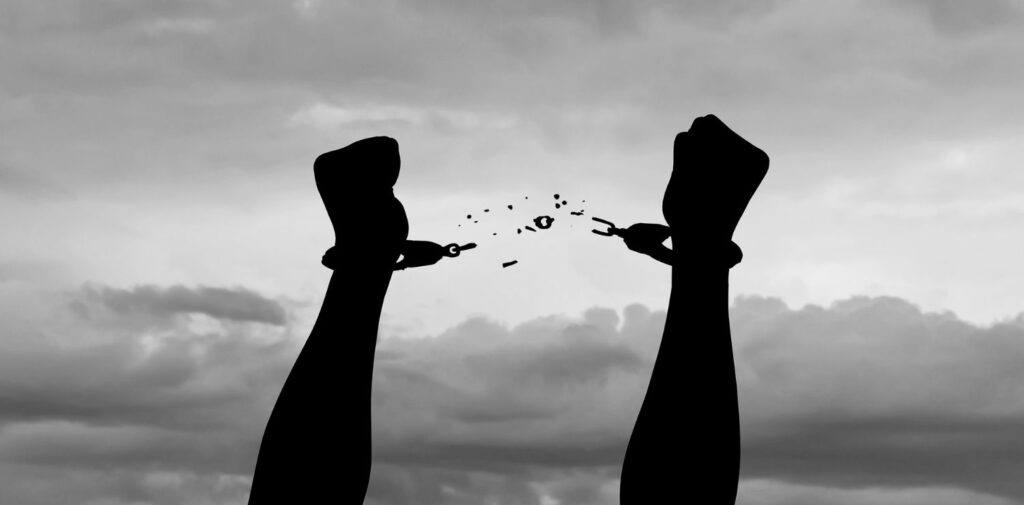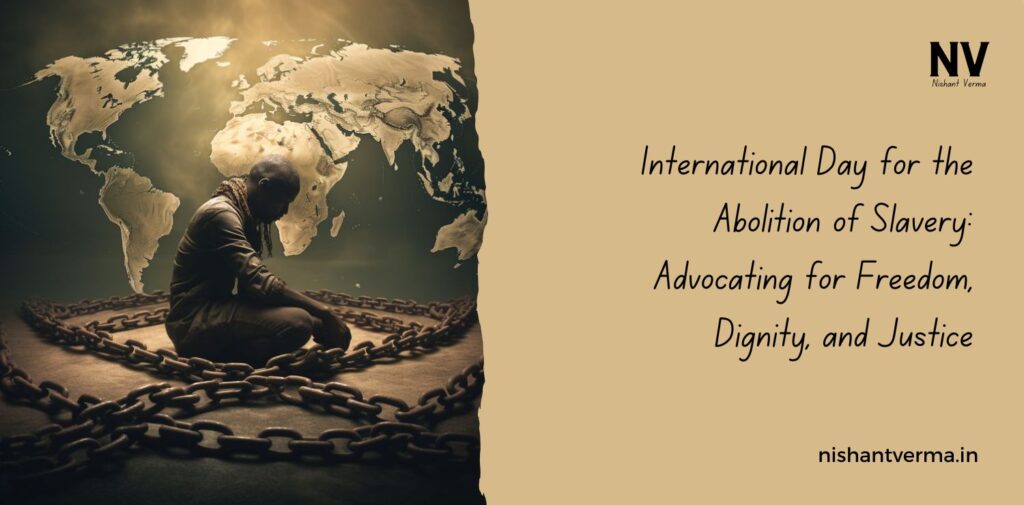Every year, on December 2nd, the world observes the International Day for the Abolition of Slavery. This important day is a reminder of the terrible history of slavery and the ongoing fight against all forms of exploitation and oppression that still exist today. It is a day to reflect on the struggles of people who have suffered under slavery, to honor those who have worked to end it, and to renew our commitment to ensuring that everyone, no matter where they live, enjoys freedom, dignity, and justice.
What is Slavery?
Slavery is a condition in which people are treated as property, bought and sold like things, and forced to work without freedom or rights. Historically, slavery was widespread in many parts of the world, with millions of people being taken from their homes and forced into hard labor in farms, factories, or households. They were not paid for their work, and often, they lived in poor conditions, faced violence, and had no control over their lives.
Though slavery was officially abolished in many countries during the 19th and 20th centuries, it still exists in different forms today. People are trafficked, forced to work against their will, or subjected to child labor, human trafficking, and exploitation in industries like agriculture, construction, and domestic work. Modern slavery may not always look like the slavery of the past, but it is still a serious issue that needs to be addressed.

The History of the Abolition of Slavery
The fight to end slavery has been long and difficult. In the 18th and 19th centuries, many brave people began to speak out against the inhuman practice of slavery. Some of the most famous abolitionists included Harriet Tubman, a former slave who helped others escape to freedom through the Underground Railroad; Frederick Douglass, a former slave who became a powerful voice for emancipation; and William Wilberforce, a British politician who fought tirelessly to end the transatlantic slave trade.
In 1833, the British Parliament passed the Slavery Abolition Act, which ended slavery in most of the British Empire. In the United States, slavery was officially abolished with the 13th Amendment to the Constitution in 1865, following the Civil War. Other countries around the world followed suit, but even after legal abolition, the effects of slavery continued to harm the descendants of those who had been enslaved, as well as the social and economic structures of nations.
Today, December 2nd serves as a reminder of the historical and ongoing struggle to ensure that slavery is not just abolished in law, but also eradicated from society. It’s an important day to remember those who fought for freedom and justice and to consider the work still needed to combat modern-day slavery.
The Forms of Modern Slavery
Even though slavery was made illegal in many countries, it has not disappeared. In fact, modern slavery is a growing problem around the world. Some of the most common forms of modern slavery include:
- Human Trafficking: Human trafficking is when people are tricked or forced into working in terrible conditions. These people may be sold to work in factories, brothels, or as domestic servants. Traffickers often prey on vulnerable individuals, such as those who are poor, uneducated, or displaced by war or disaster, offering them false promises of a better life.
- Child Labor: In some parts of the world, children are forced to work long hours in dangerous conditions, sometimes in mines, farms, or factories. These children are often denied an education and the chance to grow up in a safe, healthy environment.
- Forced Labor: Forced labor happens when people are coerced into working without their consent. They may be physically or emotionally threatened, or their wages may be withheld. In some cases, workers may be held in captivity or their passports taken away so they cannot leave their jobs.
- Debt Bondage: In debt bondage, a person agrees to work for a certain period of time to pay off a debt, but the debt is often manipulated or inflated by the employer. This can trap people in a cycle of exploitation, as they are never able to pay off their debt and escape the situation.
- Domestic Servitude: Many women and children are forced to work as domestic servants in homes, often working long hours for little or no pay. These workers may be subjected to abuse and have no way of escaping their employers’ control.

The Role of the International Community
On December 2nd, people around the world join together to raise awareness about the continuing fight to end slavery. International organizations such as the United Nations, governments, and human rights groups work together to support efforts to eliminate slavery and protect the rights of vulnerable people.
The United Nations created the Universal Declaration of Human Rights in 1948, which includes a commitment to the abolition of slavery. Over the years, many countries have signed international agreements that aim to fight human trafficking, protect victims of slavery, and ensure that those responsible for these crimes are held accountable.
One key document that was adopted by the United Nations is the Protocol to Prevent, Suppress, and Punish Trafficking in Persons, which was established in 2000. This protocol focuses on protecting victims, preventing human trafficking, and prosecuting traffickers. Many countries have ratified this protocol and made legal changes to strengthen their anti-slavery laws.
In addition to these efforts, there are many grassroots organizations and advocates working in their communities to raise awareness, provide support for victims, and fight against modern slavery.
What Can We Do to Help?
While slavery may seem like a problem that’s far away from our everyday lives, there are many ways we can make a difference. Here are some ways we can help fight modern-day slavery:
- Educate Yourself and Others: Learning about the issue of modern slavery and sharing this knowledge with others is the first step toward creating change. The more people understand the problem, the more likely they are to support efforts to fight slavery.
- Support Ethical Businesses: Many products we buy are made by workers who are being exploited. By supporting companies that are committed to fair labor practices and ethical sourcing, we can help ensure that workers are treated with dignity and respect.
- Report Suspicious Activity: If you suspect someone is being trafficked or forced to work against their will, it’s important to report it to the authorities. Many countries have hotlines and organizations dedicated to helping people escape from situations of modern slavery.
- Advocate for Stronger Laws: Governments play an important role in protecting people from slavery. You can help by advocating for laws that combat human trafficking, protect workers’ rights, and hold exploitative employers accountable.
- Support Survivors: Many survivors of slavery need support to rebuild their lives. You can donate to organizations that offer shelter, education, and job training for survivors, or volunteer your time to help those in need.

Looking Toward a Brighter Future
The fight to end slavery is far from over, but there is hope. Each year, on December 2nd, we are reminded that we all have a role to play in creating a world where no one is forced to live in bondage. By standing together, advocating for justice, and working to protect the rights of all people, we can build a brighter, more equitable future for everyone.
This International Day for the Abolition of Slavery, let us commit to continuing the work that has already begun, to fight for freedom, dignity, and justice for all. Whether through education, advocacy, or supporting survivors, each small action we take can contribute to the global effort to end slavery once and for all.
Conclusion: International Day for the Abolition of Slavery
Slavery is a grave violation of human rights that has caused suffering for centuries, but it is not a problem of the past. It still exists in many forms today, affecting millions of people around the world. The International Day for the Abolition of Slavery is a reminder of our collective responsibility to end exploitation, protect human dignity, and ensure that everyone enjoys freedom and justice. By raising awareness, supporting ethical businesses, and advocating for stronger laws, we can work together to create a world free from slavery, where everyone has the opportunity to live a life of dignity and respect.




